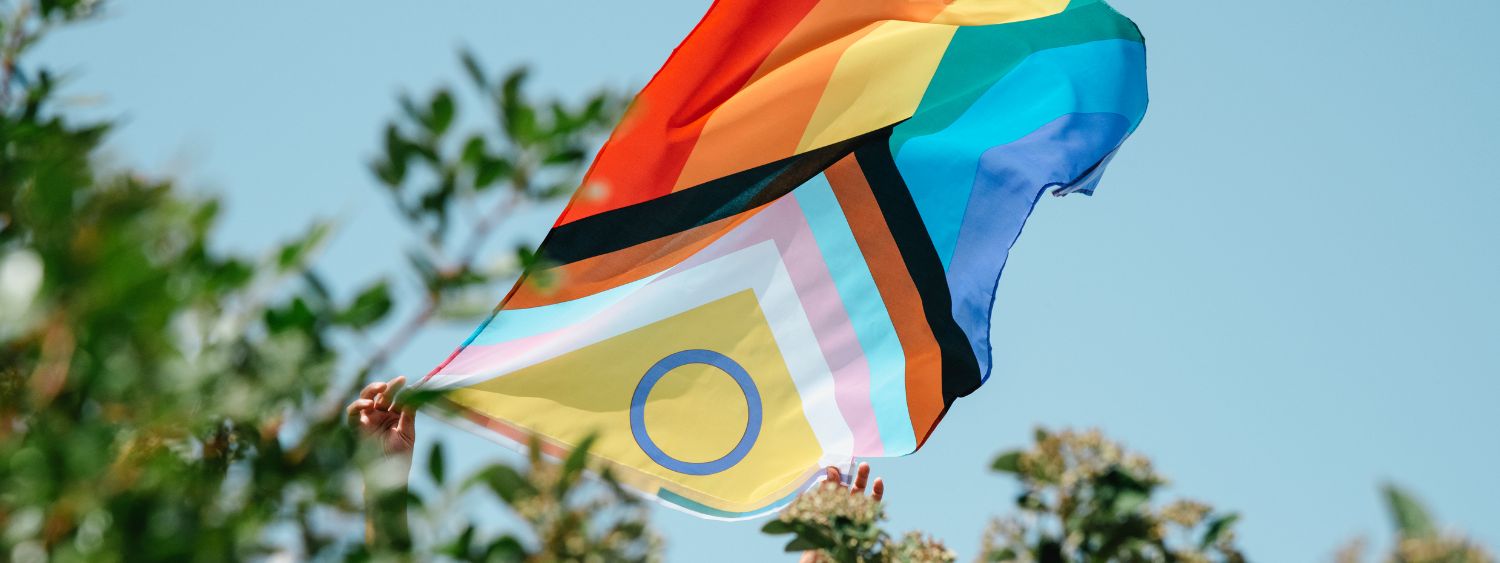
The Revd Hannah Cartwright shares a reflection on the importance of names for Pride Month.
Names tell a story
I still have the little bookmark, given to me at my baptism by one of my godparents, inscribed with my first, given (Christian) name ‘Hannah’ in a variety of spellings. It also has a line which explains its origin as a Hebrew name meaning ‘grace’, ‘favour’ or, in some contexts, ‘gift’. Names often tell a story; for example, Hannah, the mother of Samuel, experienced herself as favoured when she received the gift of a child unexpectedly, and there is no doubt that growing up with a name which prompts me to remember God’s grace to me daily too, has shaped me profoundly.
When we name someone or something, it conveys meaning onto or about the recipient on a number of different levels. Naming can denote either our relationship to them, a distinctive or notable quality of their characte, or the name can tell us something about the creature's purpose. Names take us from the abstract to the concrete; from the crowd to the individual; from the generic to the personal. Naming the different creatures in Genesis was an important task given to Adam by God (Genesis 2:20), and the prophet Isaiah reminds us of God's promise to Israel:
‘Fear not for I have redeemed you, I have called you by name, you are mine’
Isaiah 43.1
One of the first things we do for a new-born child is to give them a name; to identify them as beloved of us and belonging as a unique individual within a family unit.
Some of us might go on to change one or more of our birth names to mark a new chapter in our identity or relationship status, and some of us may simply use a nickname which we feel better represents us, but we all still remain named, known and loved to our core.
Names matter because the individuals behind those names matter, and it is a recognition of the worth, dignity and belonging of a person to use their name correctly; being willing to learn how to pronounce it properly, and to accept correction when we haven’t quite got it right or our understanding has developed.
Finding our community
Last year, the LGBTI+ Chaplaincy updated its name to include the letters ‘Q’ and ‘A’ also. These letters typically (though not exclusively) represent those who are ‘Queer or Questioning’ and those who are ‘Asexual, Aromantic or Agender’.
Some of us do not fit neatly into the binary categories which society has typically defined, and it is important that those who have a more fluid understanding of ‘where they fit’ are still able to belong to a community of care where they are named and known.
It is also significant that there is space within that community (and therefore most especially within the Chaplaincy designed to help care for LGBTQIA+ people) for those who need a safe and loving space in which to explore who they are before God without feeling any pressure to define or pigeon-hole themselves, or to express a new identity or to affirm their existing one before they feel ready.
Naming each of these broad ‘groups’, who might share similar lived experiences, also ensures that those who identify with them know they can belong and are not forgotten.
Knowing that we are known and loved gives us the space to explore more fully who God has created and called us to be. This is the foundation of all chaplaincy – not to direct or steer or advise, but to create a non-judgemental space in which a person can be truly listened to and come to know themselves and their belovedness more fully.
The LGBTQIA+ Chaplaincy of the Diocese of Oxford seeks to do just that: ‘to provide a safe space and dignity for every person’.
You are named, known and loved
The events and discussions over the last few years around same-sex marriage and blessing have impacted many of us, from all perspectives, deeply. The LGBTQIA+ Chaplaincy is a place where anyone can come to share pain or joy, challenge or hope, certainty, questions or tentative discovery about themselves, or to explore their own response to the ongoing discussions around what it means to be fully human, and the questions which this prompts for us individually and in our families around identity and relationship.
Whatever you bring to our chaplains, and by whatever name you come, you can be sure that you are named, known and loved by the God who created you and who calls you to discover more fully the neverending love that They have for you.
If you would like to find out more about the chaplaincy, take a look at the website, and to contact a chaplain, read their bios and fill in the confidential contact form.
Written by the Revd Hannah Cartwright, Associate Vicar at the University Church and former member of the LGBTQIA+ Chaplaincy Reference Group.
